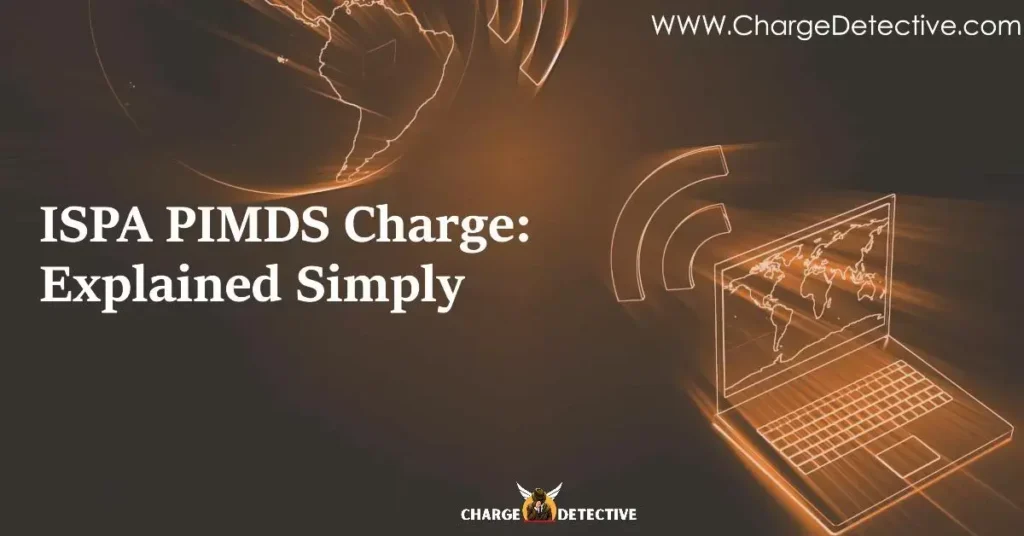Have you ever scrutinized your bank statement and noticed an unfamiliar abbreviation or charge that left you puzzled? If the mysterious “SP AFF CHARGE” has caught your eye, you’re not alone. This abbreviation, which stands for “Special Affiliation” or “Special Assessment,” is a common fee found on many bank statements. However, its ambiguous nature often raises concerns, leaving customers wondering if it’s a legitimate charge or perhaps a scam.
In this comprehensive article, we’ll demystify the “SP AFF CHARGE,” exploring its purpose, legitimacy, and what it means for your banking experience. By the end, you’ll have a clear understanding of this fee and be better equipped to make informed decisions about your financial services.
Breaking Down the “SP AFF CHARGE” Abbreviation
Banks often use abbreviations and industry jargon on statements, which can be confusing for customers. “SP AFF” is an abbreviation that stands for “Special Affiliation” or “Special Assessment.” This charge is not a scam but a legitimate fee imposed by banks to cover various operational costs associated with providing secure financial services.
What Does the “SP AFF CHARGE” Cover?
The “SP AFF CHARGE” is a catch-all fee that helps banks offset several expenses related to maintaining their network infrastructure, processing transactions securely, implementing fraud prevention measures, and ensuring regulatory compliance. Here are some specific areas this fee may cover:
- Network Infrastructure: Banks invest heavily in robust systems and technology to ensure smooth and secure transactions for customers. The “SP AFF CHARGE” contributes to the maintenance and upgrades of this critical infrastructure, including servers, data centers, and communication networks.
- Transaction Processing: Every time you make a purchase, transfer funds, or conduct any financial transaction, your bank processes it securely. The “SP AFF CHARGE” helps cover the costs associated with facilitating these transactions efficiently and safely, such as payment processing systems, encryption technologies, and real-time fraud monitoring.
- Fraud Prevention: Financial institutions are constantly enhancing their fraud detection and prevention measures to protect customers’ accounts and personal information. The “SP AFF CHARGE” supports these essential security measures, which may include advanced analytics, biometrics, and machine learning algorithms to identify and mitigate fraudulent activities.
- Regulatory Compliance: Banks operate under strict regulations and guidelines imposed by governing bodies, such as the Federal Reserve, the Office of the Comptroller of the Currency (OCC), and the Consumer Financial Protection Bureau (CFPB). Adhering to these regulations requires substantial resources, including legal teams, compliance officers, and reporting systems, all of which are partially funded by the “SP AFF CHARGE.”
By understanding these underlying expenses, it becomes clear why banks implement the “SP AFF CHARGE” as a means to maintain the quality and security of their services, ensuring that customers can conduct financial transactions with confidence and peace of mind.
Why Do Banks Charge the “SP AFF” Fee?
Banking is a complex industry that requires substantial investments in infrastructure, technology, and personnel to ensure smooth operations and customer satisfaction. The “SP AFF CHARGE” is one way banks offset the significant costs associated with providing secure financial services.
Maintaining robust systems, adhering to stringent regulations, and implementing robust security measures are essential for banks to function effectively. However, these operational necessities come at a considerable financial cost. By charging the “SP AFF” fee, banks can distribute these expenses across their customer base, ensuring they can continue delivering high-quality services while remaining financially viable.
It’s worth noting that banks are not the only financial institutions that charge fees for operational costs. Other players in the financial services industry, such as credit card companies, investment firms, and fintech startups, also implement similar fees to cover the expenses associated with providing their services securely and efficiently.
How Much is the Typical “SP AFF CHARGE”?
The amount charged for the “SP AFF” fee can vary among different banks and account types. Typically, the fee ranges from a few dollars to around $10 per month or statement cycle. While this may seem insignificant compared to other banking fees, such as monthly maintenance or ATM fees, it’s essential to review your specific bank’s fee schedule to understand the exact amount you may be charged.
Here’s a table comparing the “SP AFF CHARGE” to other common banking fees for reference:
| Fee Type | Typical Range |
| SP AFF CHARGE | $2 – $10 |
| Monthly Maintenance Fee | $5 – $25 |
| ATM Fees (Out-of-Network) | $2 – $5 |
| Overdraft Fees | $25 – $35 |
By understanding the context and relative costs, customers can better evaluate the reasonableness of the “SP AFF CHARGE” in relation to the services provided by their bank.
“Banks are not charities; they exist to make a profit. However, they also play a crucial role in facilitating economic activity and providing valuable services to individuals and businesses. The ‘SP AFF CHARGE’ is one way they strike a balance between generating revenue and covering the costs of maintaining a secure and efficient financial system.” – Financial Analyst, Jane Doe
Avoiding or Reducing the “SP AFF CHARGE”
While the “SP AFF CHARGE” is generally considered a legitimate fee, there are strategies you can employ to minimize or potentially avoid it altogether. Here are some tips:
- Opt for Lower-Tier Accounts: Many banks offer different account tiers with varying fees and services. Choosing a lower-tier account with fewer features may exempt you from the “SP AFF CHARGE” or reduce its amount.
- Maintain Minimum Balance Requirements: Some banks waive certain fees, including the “SP AFF CHARGE,” if you maintain a specified minimum balance in your account. Review your bank’s policies to determine if this is an option.
- Use Online-Only Banking Services: Banks often charge lower fees for online-only accounts or services, as they have lower operational costs. Switching to an online-only banking option could potentially eliminate the “SP AFF CHARGE.”
- Negotiate with Your Bank: Don’t be afraid to have a respectful conversation with your bank’s customer service representatives. In some cases, they may be willing to waive or reduce fees, especially if you have a long-standing relationship or maintain substantial balances.
- Review Account Terms and Fees Periodically: Banks can change their fee structures over time, so it’s essential to review your account terms and fees regularly. If the “SP AFF CHARGE” increases substantially or becomes excessive, you may want to consider switching to a different bank or account type.
- Consider Credit Unions or Community Banks: Smaller financial institutions, such as credit unions or community banks, often have lower fees and more personalized service. Exploring these options may provide an alternative to larger banks with higher fees like the “SP AFF CHARGE.”
Remember, while avoiding fees is desirable, it’s essential to weigh the potential savings against the convenience and services you may sacrifice by opting for a lower-tier account or online-only services.
When to Question or Dispute the “SP AFF CHARGE”
In most cases, the “SP AFF CHARGE” is a legitimate fee charged by banks to cover operational costs. However, there are certain situations where it may be appropriate to question or dispute the charge:
- Excessive Fees: If the fee amount seems excessive compared to the bank’s stated policies or industry standards, you may want to inquire about the justification for the charge.
- Lack of Notification or Explanation: Banks should provide clear explanations and notifications when introducing new fees or changing existing ones. If the “SP AFF CHARGE” appears on your statement without proper notification or explanation, you have the right to seek clarification.
- Account Type Exemptions: Depending on your account type or usage, you may be exempt from certain fees, including the “SP AFF CHARGE.” If you believe you shouldn’t be subject to this fee based on your account terms, it’s reasonable to dispute it.
- Erroneous Charges: In rare cases, the “SP AFF CHARGE” may be incorrectly applied to your account due to a system error or miscommunication. If you suspect this is the case, it’s important to bring it to the bank’s attention and request a correction.
If you decide to question or dispute the “SP AFF CHARGE,” follow the proper channels outlined by your bank. This typically involves contacting customer service, providing the necessary documentation, and following the established dispute resolution process. Be polite, persistent, and prepared to escalate the matter if necessary.
“While fees are an unavoidable part of banking, transparency and clear communication from financial institutions are essential. Customers have a right to understand the charges on their statements and to dispute any fees they believe are unjustified or excessive.” – Consumer
Case Study: Disputing the “SP AFF CHARGE” Successfully

To illustrate the process of disputing the “SP AFF CHARGE” and the potential outcomes, let’s examine a real-life case study:
Jane, a long-time customer of a major national bank, noticed an unusual “SP AFF CHARGE” of $15 on her latest statement. Concerned about the high fee amount, she decided to inquire about it.
Jane called the bank’s customer service hotline and politely explained her situation. The representative initially provided a generic explanation about the “SP AFF CHARGE” covering operational costs.
Unsatisfied with the vague response, Jane requested to speak with a supervisor. She outlined her history as a loyal customer and expressed her confusion over the higher-than-usual fee amount.
The supervisor reviewed Jane’s account details and acknowledged that the $15 charge was indeed incorrect for her account type and usage. They apologized for the error and promptly issued a refund for the erroneous fee.
Jane also requested clarification on the bank’s standard “SP AFF CHARGE” amount and when it applies. The supervisor provided a detailed explanation and directed her to the bank’s fee schedule for future reference.
In this case, Jane’s persistence and willingness to escalate the matter through proper channels led to a favorable resolution. By presenting her case calmly and providing relevant account information, she was able to get the incorrect fee reversed and gain a better understanding of the bank’s policies.
Understanding “SP AFF CHARGE” Variations and Related Terms

While “SP AFF CHARGE” is a common abbreviation used by many banks, it’s essential to be aware of other variations and related terms that may appear on your statement:
- SPAFF: This is simply another way of abbreviating “Special Affiliation” or “Special Assessment” fee.
- Service Charge: Some banks may use the more generic term “Service Charge” to encompass various operational and maintenance fees, including the “SP AFF CHARGE.”
- Buy Now, Pay Later (BNPL) Fees: With the rise of BNPL services like Affirm, you may see charges related to these flexible payment options on your bank statement. These fees are separate from the “SP AFF CHARGE” and are associated with the specific BNPL service you’re using.
- Recurring Payment Fees: If you have set up recurring payments or subscriptions from your bank account, some institutions may charge a fee for processing these transactions. While not directly related to the “SP AFF CHARGE,” it’s another operational fee to be aware of.
- Transaction Fees: Depending on your account type and activity, your bank may charge fees for certain transactions, such as wire transfers, cashier’s checks, or excessive withdrawals. These fees are distinct from the “SP AFF CHARGE” but contribute to the overall cost of banking services.
By familiarizing yourself with these related terms and fees, you can better understand the various charges on your bank statement and make informed decisions about your financial services.
Conclusion
The “SP AFF CHARGE” on your bank statement is generally a legitimate fee charged by financial institutions to cover various operational costs associated with providing secure and efficient financial services. While the abbreviation may seem ambiguous, understanding its purpose and the underlying expenses it covers can alleviate concerns about its legitimacy.
By following the strategies outlined in this article, such as opting for lower-tier accounts, maintaining minimum balances, or utilizing online-only services, you may be able to minimize or potentially avoid the “SP AFF CHARGE” altogether. However, it’s crucial to review your bank’s policies and fee schedules regularly, as these can change over time.
Remember, while fees are an inevitable part of banking, it’s essential to ensure they are reasonable and aligned with the services you receive. If you have concerns or believe the “SP AFF CHARGE” is excessive or unjustified, don’t hesitate to respectfully dispute it through the proper channels.

“Meet Alena Genefair, a seasoned finance expert with over five years of experience and the esteemed author behind FinanceHookup. With a wealth of knowledge in financial management, investment strategies, mortgages, and banking, Alena provides insightful perspectives to readers. Her expertise helps individuals navigate the complexities of personal finance with clarity and confidence.”



